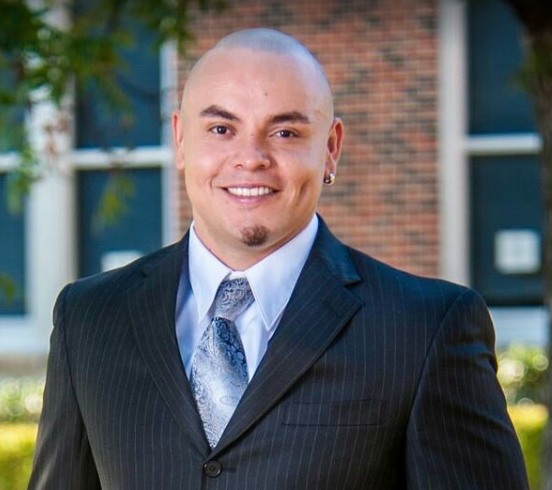
You don’t have to love [research], but you do have to understand it and be able to digest it in order to be a competent professional in any branch of psychology.
Julian Sanchez Assistant Director of Recruitment
- Alum

A Conversation with Julian
What is your current employment/career?
My current position is Assistant Director of Recruitment for the College of Engineering at the University of Texas-Arlington.
What do you like most about your current job in recruitment for the College of Engineering?
My current position has taught me how much I enjoy helping individuals develop and expand their personalities, which is why I have enjoyed supervising a graduate assistant and the College of Engineering Ambassadors. Usually, most of the students that work for me begin as shy and introverted individuals who blossom into the self-assured public ambassadors of their discipline that are able to give presentations in front of 200+ people, conduct professional tours of the College of Engineering at UTA and work with professionals throughout campus. I have students that are a part of my program who go on to work at Lockheed Martin, Boeing, Allstate Insurance, UT Southwestern research facilities and Chase Bank. This position has also helped me formulate my research interests in the vocational psychology of minorities and has solidified my decision to pursue a Counseling Psychology PhD in the near future.
How did ETAMU prepare you for your current position?
Well, I really do feel that all of my classes were influential in one way or another at East Texas A&M, but what made these courses so impactful were the professors that taught them. Now that I am 34 years old, I appreciate so much what I learned in my bachelor's and master's degrees due to the relationships I formed with my professors. Dr. Charles Keenan, Dr. Steve Ball, Dr. Shulan Lu and Dr. Benton Pierce taught me fundamental psychology theories, evidence-based practices, research methods and, most importantly, the astounding complexity and resilience of human beings. Each one of them taught in a way that was practical and applicable to life. And each one of them is truly passionate about their craft—you cannot fake that. As students, we all know the professors who show up for a paycheck as well as those who show up for their passion. I believe I was very lucky that mine showed up for the latter.
What advice do you have for students?
I would recommend to get involved in research in order to make sure that the discipline they have chosen is the field for them even though they may not attain monetary compensation. The payment is in the experience that comes with working with researchers who know their craft. Research is essential in psychology, and, as an undergraduate student, I volunteered to work in the labs of Dr. Shulan Lu and Dr. Benton Pierce. At the time, I did not like research and found the way it was written hard to understand. As I learned more about the language of research during my master's degree and the importance of reliable and valid psychometrics, I understood why research was so important for psychology. You don't have to love it, but you do have to understand it and be able to digest it in order to be a competent professional in any branch of psychology.
Educational Background
- M.S., Psychology, Texas A&M University-Commerce(now East Texas A&M University), 2012
- B.A., Psychology, Texas A&M University-Commerce(now East Texas A&M University), 2009


